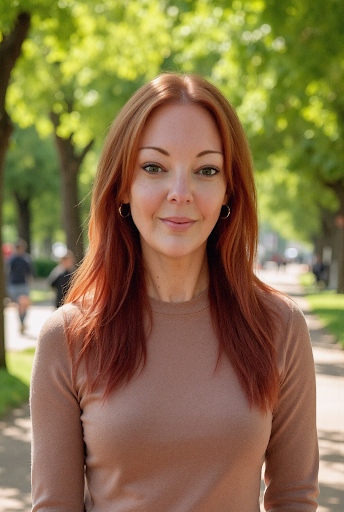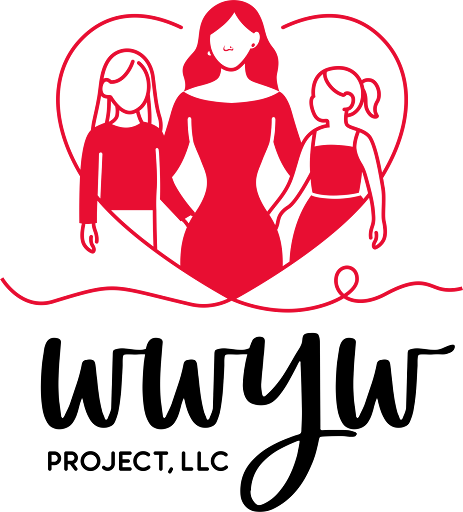From Stories to Solutions: We Wear Our Truth Builds Survivor-Led Resource Hub for Real Change

The What Were You Wearing? project, a survivor-led movement founded by Crystal Lourinia, is building something new: a digital Resource Hub designed to change the way experiences of abuse are seen, spoken about, and supported. Though still in development, the Hub is envisioned as a first-of-its-kind platform where survivors can access immediate help, while also serving as a foundation for long-term legal and cultural change.
The project, which operates under the broader mission of the What Were You Wearing (WWYW) project, is structured around five arms. Two of them, the We Wear Our Truth Blog and storytelling space, alongside the Red Thread Collective survivor stories, are already live and held with care. The Resource Hub represents the next phase, bringing together crisis support, books, referrals, and legal advocacy in one survivor-centered space.
"When you think about hotlines or treatment facilities, all of those basics will be there," Lourinia explains. "But this Hub will go further. If you need resources right now, you'll know where to go. If you're looking for a trusted program or legal advocacy, you'll find it here. It's about making support accessible without survivors having to navigate endless searches."
While The Resource Hub serves the immediate need to support survivors and those who love them through guidance, referrals, and a safe place to connect with credible help, the Red Thread Collective arm of the project works in the background to collect data that will be used to shape legislation and challenge systematic gaps.
"There are databases everywhere, but so many of them never see the light of day," Lourinia says. "My call to action is: share your story with us. We'll keep it safe in the Red Thread Collective Vault– you are in control and the shame was never yours to hold. You can choose to remain anonymous, choose to publish or not publish. And what we take from those stories is the impact beyond the survivor; the toll on families, on communities, across generations."
This unique submission model is central to her mission. By gathering both personal narratives and quantifiable data, Lourinia aims to build a body of evidence powerful enough to shift laws, policies, and most importantly, the language society uses around survivors.
For Lourinia, one of the biggest barriers to healing and justice is the way people talk about physical intimate harm. Phrases like 'What were you wearing?' remain alarmingly common, and in her case, deeply personal.

"It's my kryptonite," she says. "First and foremost, a child is never responsible for the harm that is done to them. I was recently asked that question again after coming forward about an assault. These questions are not meant to help the survivor. They're meant to make others feel more comfortable. The language has to change."
She believes that shifting language is not just about empathy; it's about accountability and prevention for future generations. "Realizing that our job now is not just to survive – it's to protect our future generation, maybe in ways you were never protected yourself," she says.
A key focus of WWYW is highlighting the ripple effects of abuse. The consequences rarely stop at the individual. Families and communities often carry the weight in silence. "I've received submissions where survivors never told their families for decades," Lourinia shares. "In one story, a woman abducted in the 1970s kept it hidden until she submitted it through our platform. She had told her family she'd run away because she was too embarrassed. That silence doesn't just affect one life; it shapes an entire family's story."
The Resource Hub is being designed to remain free for survivors. "Survivors never pay," Lourinia emphasizes. "This is not a subscription-based service. My intent is always to guide, never to profit from someone's pain."
To sustain and scale the project, WWYW is open to partnerships, investments, and donations. Collaboration, Lourinia believes, will accelerate the Hub's ability to both serve survivors and provide lawmakers with the actionable data needed to close systemic gaps.
"This has been a project I built without fully realizing what I was building until after the fact," she reflects. "Everywhere I go, may it be airports, hotels, or bars, there's a story. It's heartbreaking. But it also shows me how necessary this work is."
By weaving together immediate resources, survivor stories, and actionable data, Lourinia hopes to bridge the gap between individual healing and systemic reform. "I never want anyone else to feel the way I did," she says. "And I don't want children, mine and others' out there, to inherit a world where these questions and silences still exist."
© Copyright IBTimes 2025. All rights reserved.



















